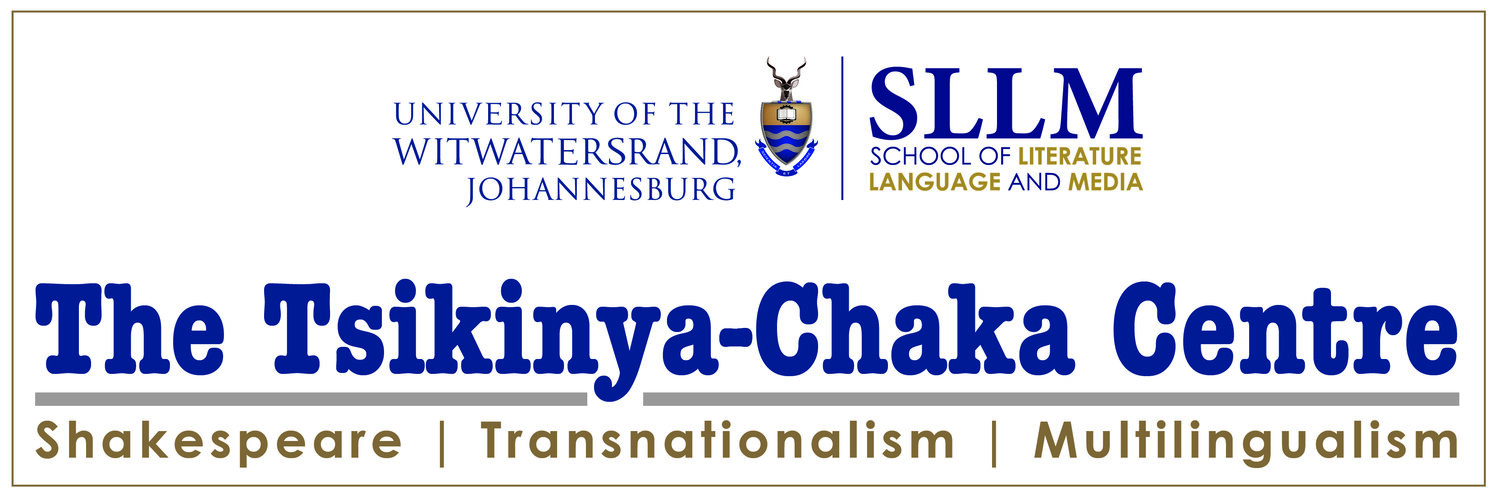Globe4Globe: Shakespeare and Environmental Justice
After the EarthShakes Alliance launched Globe4Globe four years ago (hosted virtually by Shakespeare’s Globe in the Covid context of 2021), the symposium returned earlier this month as a live online event taking place over 24 hours, with participants joining from across multiple time zones around the world! Globe4Globe 2025 brought together scholars, practitioners, activists and educators to explore how Shakespeare’s works relate to ideas of environmental justice - historically and in the present.
Running from 12-13 September, the symposium was convened by Katie Brokaw (Shakespeare at Winedale, University of Texas at Austin), Claire Hansen (Australian National University, Canberra) and Gretchen Minton (Montana State University). Submissions were invited on a broad range of topics, including:
The depiction of environmental issues in Shakespeare’s works (and the works of other early modern dramatists)
Climate justice
Intersectional justice and the relationship between environmental crisis, gender, and race
Environmental justice in theatre practice
Outdoor, site-specific and place-based Shakespeare
Eco-dramaturgy
Ecocritical and ecofeminist readings of Shakespeare
Environmental education.
The programme boasted almost fifty pre-recorded video presentations, including four keynotes: British director and theatre scholar Elizabeth Freestone spoke about her seminal production of The Tempest with the Royal Shakespeare Company in 2023; Rebecca Laroche and Jennifer Munroe focused on Paulina, Hermione and Perdita in The Winter’s Tale as they reflected on their “post-academia” practice of ecofeminism; theatre-maker and member of the Arizona Center for Medieval and Renaissance Studies Madeline Sayet offered invitations to consider the systems of environmental justice that exist in relationship to storms and seas in The Merchant of Venice, The Tempest and Twelfth Night; and TCC affiliate Sandra Young of the University of Cape Town discussed Hilary Elfick’s poetic-dramatic sequence An Ordinary Storm, which explores the indigenous modes of inhabitance hinted at in The Tempest - inviting audiences and readers to envision ways of being not accounted for in a colonialist imaginary, and demonstrating how histories of violence can be marshalled towards just futures.
Another TCC affiliate, Kathryn Vomero Santos of Trinity University, was among the delegates presenting at Globe4Globe. Her video paper brought attention to the relationship between linguistic heritage and ecological considerations as she told the story of how Samala, a long-dormant but newly awakened language, came to be incorporated into Chicano playwright José Cruz González’s 2010 play Invierno (a reimagining of The Winter’s Tale).
Tsikinya-Chaka Centre director Chris Thurman also presented at Globe4Globe, joining Kirsten Sandrock and Craig Dionne in a session dubbed “Land and Language”. Thurman’s video was produced as a “sequel” to the video paper he presented earlier this year at the British Shakespeare Association conference in a hybrid panel focusing on the Decentred Shakespeares Network and its 2022 initiative Pericles on the Seas. In the previous presentation, Thurman had considered how the site-specific performances in the Pericles on the Seas project - emphasising their coastal settings in fishing communities, on the dockside, and in the littoral zone where water meets land - might act as a creative spur for South African Shakespeareans. Why, he wondered, have there been no “blue” Shakespeares in South Africa: that is, what has prevented the country’s theatre-makers from applying an oceanic imagination in their approach to Shakespeare’s plays?
In his Globe4Globe presentation, Thurman suggested that this was a slightly misleading question. There have, after all, been a handful of maritime and littoral elements in post-apartheid stagings, perhaps most notably in productions of Hamlet citing the apocryphal Red Dragon performances to draw on a supposed centuries-long Shakespearean presence in Africa (or at least just offshore). While one might be cautious of the ideological implications of a fabricated history making a simplistic connection between Shakespeare and South Africa, these Hamlets gesture towards what could be done with productions of Shakespeare’s “watery” late plays, like The Tempest, if they were staged with an eco-oceanographic dramaturgical approach that attended to histories of the Global South and local political nuance.
Thurman concluded by pointing to two other performing arts precedents: The Storming, an operetta by the Insurrections Ensemble first performed in 2015; and Bettina Malcomess’ “visual radio play” A Tempest (for the sea under the city), staged at the Centre for the Less Good Idea in Johannesburg in 2024. Moving beyond the Shakespearean text, these examples signal future possibilities, at sea or on land, for “oceanic” South African Shakespeares in an age of environmental crisis.
All Globe4Globe presentations are available for viewing on EarthShakes Alliance’s YouTube channel.
You can also download all the paper abstracts and speaker bios.

